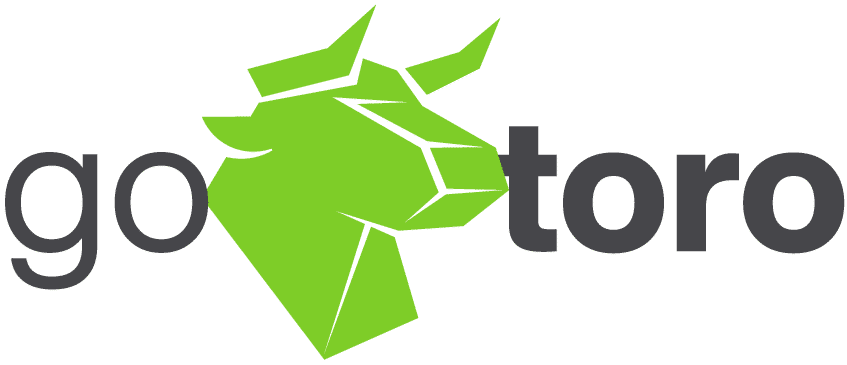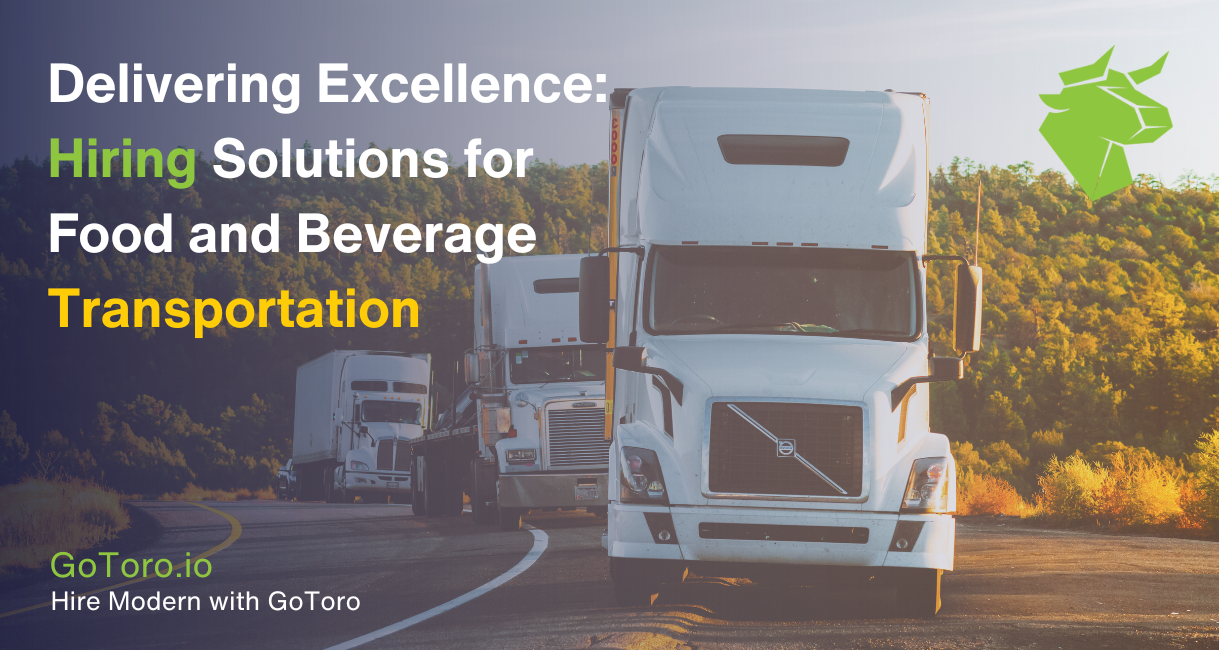The Critical Role of Transportation in the Food and Beverage Industry
Transportation is the backbone of the food and beverage industry, ensuring that products move seamlessly from producers to consumers while maintaining quality, freshness, and safety. However, the complexity of transportation hiring in this sector cannot be overstated. Finding skilled personnel who not only understand the logistics of transportation but also the unique requirements of the food and beverage industry presents a significant challenge. The demand for drivers and logistics personnel who are adept in navigating these challenges is high, making transportation hiring a critical area of focus for companies looking to excel in this competitive market.
“The food and beverage logistics industry will grow by $69.69 billion between 2021 and 2025. This growth offers manufacturing and logistics companies immense opportunities over the next 3 to 5 years.” (LGI Inc.)
Understanding the Unique Challenges of Hiring for Food and Beverage Transportation

Transportation hiring in the food and beverage industry is fraught with specific requirements and challenges. Firstly, candidates must possess the right expertise, not just in transportation but also in handling food and beverage products according to industry standards. The fluctuating demand, driven by seasonal peaks, promotional campaigns, and consumer trends, adds another layer of complexity, requiring a workforce that is both flexible and scalable. Moreover, a deep understanding of the industry’s nuances, from the perishability of products to the intricacies of supply chain management, is essential. These challenges underscore the need for a strategic approach to transportation hiring, one that prioritizes industry-specific knowledge and adaptability.
Importance of Safety and Regulatory Compliance in Hiring Drivers and Logistics Personnel
In the realm of food and beverage transportation, safety and regulatory compliance are paramount. The sector is governed by strict safety standards and regulatory requirements, such as those set forth by the Food and Drug Administration (FDA) and Hazard Analysis Critical Control Point (HACCP) guidelines. These regulations are in place to ensure the safety and quality of food and beverage products during transit, making it imperative that hired personnel are not only aware of these standards but also have a proven track record of adhering to them.
The process of transportation hiring must, therefore, include rigorous checks and training to ensure compliance with these regulations. This includes verifying candidates’ knowledge and experience with industry-specific safety practices, their understanding of regulatory requirements, and their commitment to maintaining the highest standards of safety and quality. By prioritizing safety and regulatory compliance in the hiring process, companies can safeguard their operations against risks and ensure the integrity of their products, ultimately contributing to consumer trust and business success.
In conclusion, the transportation hiring process in the food and beverage industry is complex and multifaceted, requiring a deep understanding of the sector’s unique challenges and a strong emphasis on safety and regulatory compliance. By recognizing and addressing these critical aspects, companies can build a skilled and compliant workforce that is equipped to meet the demands of this dynamic industry.
Key Qualities and Skills to Look For in Transportation Hiring
When it comes to transportation hiring in the food and beverage industry, understanding the essential skills, qualities, and qualifications necessary for success is paramount. Firstly, attention to detail is crucial. This includes the ability to accurately follow delivery schedules, manage inventory, and ensure that all safety and handling protocols are meticulously adhered to. Problem-solving abilities also rank high on the list of necessities. The dynamic nature of transportation logistics often presents unexpected challenges that require quick thinking and effective solutions.
Knowledge of safety protocols is non-negotiable. Professionals in this field must be versed in the regulations and standards governing the transportation of food and beverage products. This knowledge ensures that all goods arrive at their destination in perfect condition, safe for consumer use.
Moreover, the significance of soft skills cannot be understated. Effective communication, teamwork, and a customer-centric approach are invaluable. These skills ensure smooth operations, foster a positive work environment, and contribute to the overall satisfaction of clients and customers. A transportation hiring strategy that prioritizes these skills and qualities will help build a competent and reliable team.
Strategies for Attracting Qualified Candidates with Experience in Food and Beverage Transportation
Attracting the right talent for transportation hiring in the food and beverage industry requires a strategic approach. One of the first steps is crafting compelling job descriptions. These descriptions should clearly outline the skills and qualifications required, but they should also convey the value and opportunities the role offers. This might include unique challenges, the chance to work with leading technology, or the opportunity to make a significant impact within the industry.
Offering competitive benefits is another critical strategy. Beyond attractive salaries, benefits such as health insurance, retirement plans, performance bonuses, and opportunities for professional development can set a company apart in the eyes of potential candidates.
Engaging with industry-specific communities and events is also beneficial. Participating in industry conferences, online forums, and local meet-ups can help raise awareness of your company and the opportunities it offers. These venues provide platforms for networking with potential candidates who possess the exact experience and skills needed.
Lastly, building a strong employer brand is essential. This involves developing and communicating a clear value proposition that resonates with the values and expectations of professionals in this niche. A strong employer brand not only attracts qualified candidates but also fosters loyalty and engagement among current employees. It reflects the company’s commitment to excellence, safety, and innovation in the food and beverage transportation sector.
By implementing these strategies, companies can enhance their transportation hiring processes, attracting and retaining the skilled professionals essential for success in the competitive and fast-paced world of food and beverage transportation.
Leveraging AI Technology for Efficient Recruitment in Transportation Hiring

The landscape of transportation hiring is undergoing a significant transformation, thanks to advancements in AI technology. In the specialized sector of food and beverage transportation, where the precision of candidate-job matching and predictive hiring success are paramount, AI-powered tools are not just advantageous—they are essential.
Transforming Recruitment with AI-powered Tools
Artificial Intelligence (AI) is revolutionizing HR technology, bringing unprecedented efficiency and effectiveness to the recruitment domain. For transportation hiring, this means deploying AI-driven tools like resume parsing, candidate matching, and predictive analytics to streamline the hiring process, ensuring a more equitable and insightful candidate selection.
Resume Parsing and Candidate Matching
AI-driven resume parsing automates the extraction of information from resumes, translating it into a structured format that can be easily assessed and compared across candidates. This is particularly crucial in transportation hiring, where specific qualifications, experience, and skills are essential for success in the food and beverage sector. When combined with candidate matching algorithms, this technology ensures that recruiters are presented with a shortlist of applicants whose profiles best align with the job’s requirements. This not only saves time but significantly improves the quality of matches between candidates and job roles, enhancing the efficiency of the hiring process.
Predictive Analytics: Forecasting Hiring Success
Predictive analytics leverages historical data and machine learning algorithms to forecast outcomes in the recruitment process. In the context of transportation hiring, this might include predicting a candidate’s success in a role, the likelihood of a candidate accepting a job offer, or identifying which recruitment channels are most effective. For the food and beverage transportation sector, where the cost of a bad hire can be significant, such predictive insights are invaluable. They enable professionals to make informed, data-driven decisions that not only improve recruitment outcomes but also minimize biases, making the hiring process more equitable and effective.
Effective Hiring Strategies Enhanced by AI
Incorporating AI into effective hiring strategies combines the best of innovative and traditional approaches, creating a comprehensive process tailored for the food and beverage transportation industry. The thorough vetting process, including background checks, driving record reviews, and skill assessments, is augmented by AI’s precision and analytical capabilities.
The integration of AI-powered tools into transportation hiring strategies introduces a level of efficiency and insight previously unattainable. By automating critical yet time-consuming tasks like resume parsing and candidate assessment, AI allows recruiters to focus on more strategic aspects of the hiring process, such as candidate engagement and cultural fit assessment. Moreover, the predictive analytics capability of AI transforms hiring from a reactive to a proactive process, enabling companies to anticipate hiring needs and identify potential challenges before they arise.
In conclusion, the evolution of AI in technology is setting new benchmarks for hiring excellence in the food and beverage transportation sector. By embracing these innovations, companies can not only streamline their hiring processes but also ensure they attract and retain the best talent, essential for maintaining a competitive edge in this dynamic industry.
Effective Hiring Strategies for Transportation Hiring
Combining innovative recruitment strategies with traditional approaches can result in a comprehensive and effective transportation hiring process. One key aspect of this approach is ensuring a thorough vetting process. Background checks are essential for verifying the accuracy of a candidate’s provided information and for ensuring they meet the legal requirements for transportation roles. This includes checking for any criminal history that could impact their suitability for the role.
Driving record reviews are equally important, especially in the transportation sector. A clean driving record not only indicates a candidate’s compliance with traffic laws but also their commitment to safety – a critical consideration when transporting food and beverage products.
Skill assessments are another vital component of the vetting process. These can include practical tests of driving ability, as well as evaluations of logistical and problem-solving skills relevant to the role. Such assessments ensure candidates possess the practical skills necessary for success in their roles, complementing the information obtained through resumes and interviews.
Finally, combining these strategies with traditional approaches such as face-to-face interviews and reference checks can provide a well-rounded view of each candidate. Interviews allow for the assessment of soft skills and cultural fit, while reference checks offer additional insights into a candidate’s past performance and work ethic.
By leveraging technology and implementing a thorough vetting process, companies can create an efficient and effective transportation hiring strategy. This approach not only streamlines the recruitment process but also ensures the selection of highly qualified and suitable candidates for roles in the food and beverage transportation sector.
Retaining Top Talent in Transportation Hiring

The success of transportation hiring strategies doesn’t end with the onboarding of qualified candidates; it extends into the retention of these valuable employees. Retaining top talent within the food and beverage transportation sector requires a multifaceted approach focused on creating a supportive and engaging work environment.
Fostering a Positive Work Environment
Creating a work culture that promotes respect, teamwork, and open communication is vital. A positive work environment encourages employees to stay and contribute their best, reducing turnover and fostering a sense of belonging.
Providing Continuous Training
Investing in continuous training ensures that employees not only refine their current skills but also develop new ones, keeping them engaged and adaptable to industry changes. This commitment to professional development underscores the company’s investment in its employees’ growth.
Ensuring Competitive Compensation
Competitive compensation, including fair wages, benefits, and bonuses, is crucial for retaining talent. Compensation should reflect the value employees bring to the company and the industry standards, ensuring they feel appreciated and fairly rewarded.
Promoting Career Development Opportunities
Career advancement opportunities motivate employees to stay and grow within the company. Clear paths to advancement and regular performance evaluations that recognize achievements and potential for growth are essential components of a successful retention strategy.
In conclusion, achieving excellence in food and beverage transportation hinges on strategic hiring and a strong commitment to employee retention. By adopting innovative recruitment technologies and nurturing a supportive workplace culture, businesses can ensure a high standard of service delivery. Ready to transform your approach? Request a demo from Gotoro today and see how we can enhance your transportation hiring strategy.


